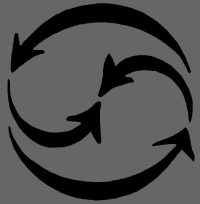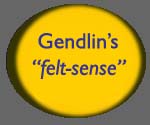In this era of quantum physics and relativity theory, we are already familiar with the idea of the
thought experiment. Einstein imagined himself astride a beam of light, and wondered how the universe might offer itself up to his perception whilst he was travelling at this almost unthinkable speed. Schrodinger bequeathed us his extraordinary imaginary cat in a sealed box, in a situation where we cannot ascertain whether it is alive or dead. These mental constructions enabled us to think about things we otherwise could not have conceived of.
Less well recognized - but true nonetheless - is the fact that fiction, drama and poetry are forms of thought experiment which have been shaping and enriching our lives for millennia. that is why we shall often be drawn to the work of the modern novelist - since he and she construct for us a virtual reality which illuminates aspects of life not otherwise visible to us in the everyday hurly burly.
Here, for instance, is a deceptively simple narrative
(1) which depicts Tom and Maggie, brother and sister aged nine and six, who are wiling away a carefree afternoon. They are sitting in the elder tree, and they have to divide their third and last jam puff between them. Tom's knife is hovering, he is unsure how to make a successful cut, Maggie's eyes are fixed on the knife. He cuts, but the result is not satisfactory - the halves look unequal to him. At last he says:
'Shut your eyes, Maggie.'
'What for?'
'You never mind what for. Shut 'em when I tell you.'
Maggie obeyed.
'Now, which'll you have, Maggie - right hand or left?'
'I'll have that with the jam run out,' said Maggie, keeping her eyes shut to please Tom.
'Why, you don't like that, you silly. You may have it if it comes to you fair, but I shan't give it to you without. Right or left - you choose, now. Ha-a-a!' said Tom in a tone of exasperation as Maggie peeped. 'You keep your eyes shut now, else you shan't have any.'
Maggie's power of sacrifice did not extend so far; indeed, I fear she cared less that Tom should enjoy the utmost possible amount of
puff than that he should be pleased with her for giving him the best bit. So she shut her eyes quite close, till Tom told her to 'Say which,' and then she said, 'Left hand.'
'You've got it,' said Tom in rather a bitter tone.
'What! The bit with the jam run out?'
'No; here, take it,' said Tom firmly, handing decidedly the best piece to Maggie.
'Oh, please Tom, have it; I don't mind - I like the other; please take this.'
'No, I shan't,' said Tom almost crossly, beginning on his own inferior piece.
Maggie, thinking it was no use to contend further, began too, and ate up her half puff with considerable relish as well as rapidity. But Tom had finished first and had to look on while Maggie ate her last morsel or two, feeling in himself a capacity for more. Maggie didn't know Tom was looking at her; she was seesawing on the elder bough, lost to almost everything but a vague sense of jam and idleness.
'Oh, you greedy thing!' said Tom when she had swallowed the last morsel. He was conscious of having acted very fairly and thought she ought to have considered this and made up to him for it. He would have refused a bit of hers beforehand, but one is naturally at a different point of view before and after one's own share of puff is swallowed.
Maggie turned quite pale. 'Oh, Tom, why didn't you ask me?'
'I wasn't going to ask you for a bit, you greedy. You might have thought of it without, when you knew I gave you the best bit.'
'But I wanted you to have it - you know I did,' said Maggie in an injured tone.
'Yes, but I wasn't going to do what wasn't fair... if I go halves, I'll go 'em fair - only I wouldn't be a greedy.'
'With this cutting innuendo, Tom jumped down from his bough
Thus Tom stalks off and leaves Maggie weeping bitter tears alone in the tree.
That this is indeed a thought experiment, is attested by the fact that neither Tom nor Maggie could possibly have had access to the information that is presented to us, including as it does the feelings and perceptions of both parties. The novelist has allowed herself access, in effect, to both the characters? minds. Through this construction of something never simply given to us in experience, she nevertheless displays the interplay of fact and feeling in a form which commands our assent.











